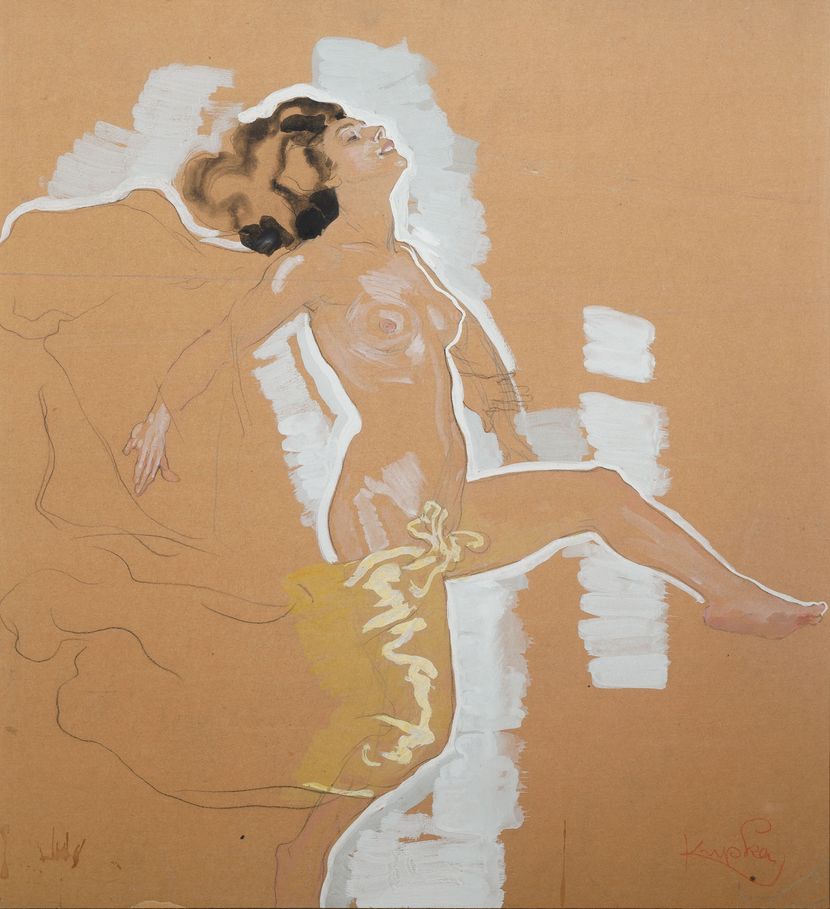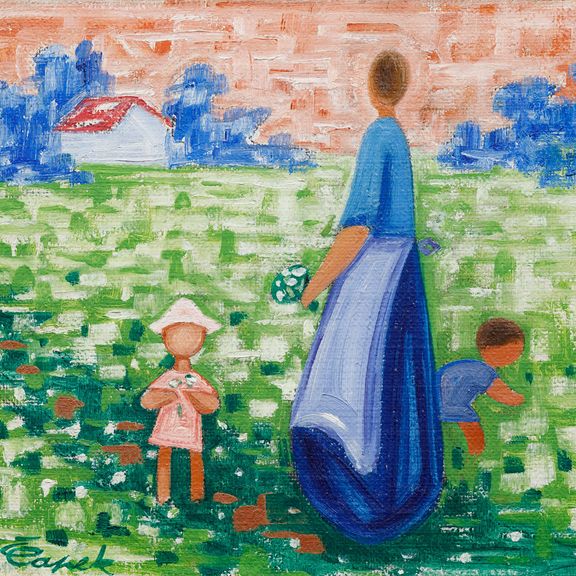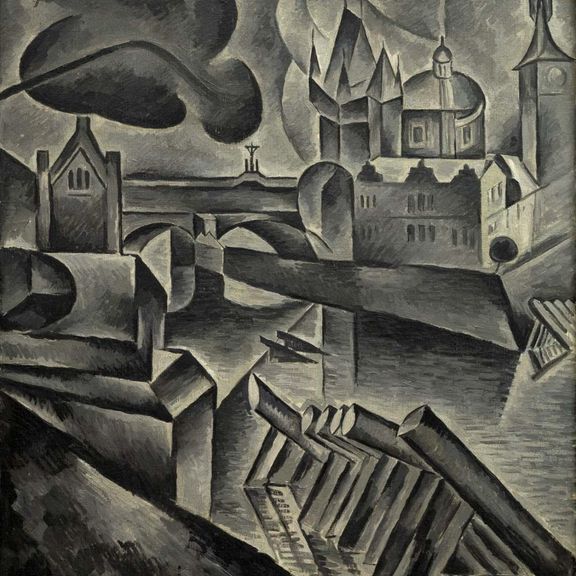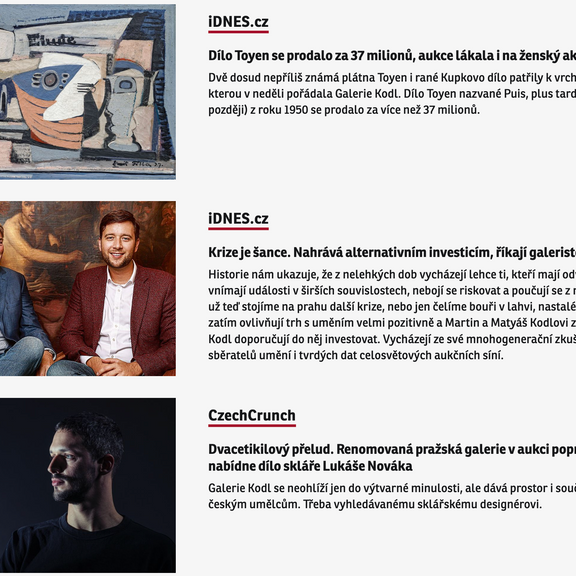
mixed media (pencil, watercolor, white) on paper
circa 1904
lower right
45 × 41.5 cm
frame, glass, pasparted
Starting price: 1,000,000 CZK Final price: 1,560,000 CZK
88th Auction, lot 182 This remarkable work by one of the world’s most famous Czech painters of the 20th century, František Kupka, is an interesting example of his exceptional drawing skills. Compared to his final compositions we can learn about the artist’s working methods, discovering he not only used various techniques to achieve the necessary impression, but also demonstrated the freedom of style especially in pencil drawing, which is relaxed and shows the ability to faithfully depict perfect anatomical proportions and movement dynamics in a single stroke. Around the time when this work was executed, Kupka was also preparing to work on a large set of illustrations for the six-volume encyclopaedia written by the geographer Élisée Reclus entitled Man and Earth (Élisée Reclus: L'Homme et la Terre, Bibliotheque universelle, Paris, 1905–1908), which undoubtedly represents his most extensive and comprehensive work of illustration. The presented Dancer is based on the same principals, composed of brilliant academic drawing and the effort to express the depicted person’s state of mind through the pose of their body. In the same way that some gestures are considered universal for expressing specific information, (a person sitting with his knees up to his chin can indicate anxiety, the depiction of a person with his head in his hands can indicate despair), we can “decode” the message of the depicted dancer by a comparison with the set Man and Earth. Very similar tense poses and even the physiognomy of the faces are achieved namely in the illustrations for Palestine and Carolingians and Normans, where abducted and murdered women are captured with a tense gesture of their last breath. Although Kupka’s Dancer expresses rather emotions associated with dance, her ecstasy is, however, identical. It is undoubtedly a highly attractive artwork for collectors. Assessed during consultations by prof. J. Zemina and PhDr. E. Havlová. The expertise by PhDr. K. Srp is attached.







